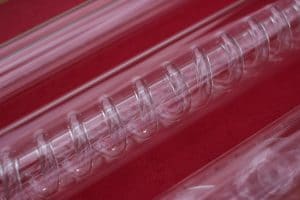 The various technologies that industries rely on these days come in all sizes and are implemented for nearly all types of applications. In many cases, technological solutions are customized to meet the unique needs of certain advanced applications, or those that are designed for highly specific processes. To meet the specific thermal management needs of such innovative applications, companies often rely on custom thermal solutions, such as heat exchangers, which often provide optimal, high-performance electrical cooling at minimal costs. Using comprehensive design and analysis capabilities, eco-friendly heat transfer concepts, and innovative manufacturing techniques, modern custom thermal solutions can be just as beneficial for applications of all types.
The various technologies that industries rely on these days come in all sizes and are implemented for nearly all types of applications. In many cases, technological solutions are customized to meet the unique needs of certain advanced applications, or those that are designed for highly specific processes. To meet the specific thermal management needs of such innovative applications, companies often rely on custom thermal solutions, such as heat exchangers, which often provide optimal, high-performance electrical cooling at minimal costs. Using comprehensive design and analysis capabilities, eco-friendly heat transfer concepts, and innovative manufacturing techniques, modern custom thermal solutions can be just as beneficial for applications of all types.
Taking advantage of heat transfer concepts
One of the most distinctive capabilities of modern heat exchangers is their ability to transfer heat rather than rely on traditional electrical cooling methods. Methods such as natural/forced convection, conduction, and phase-change cooling allow them to absorb and transfer electrical waste heat at a rapid, consistent pace. This effectively prevents electrical overheating by preventing waste heat from accumulating within an enclosure, and the process doesn’t revolve around more complex processes such as air conditioning or air compression. Because of this, heat exchangers can achieve high-levels of waste heat management with minimal energy and overhead costs.
Comprehensive analysis and design
Their capabilities for eco-friendly heat transfer help set custom heat exchangers and other thermal solutions apart. However, their versatility and adaptability to suit almost any electrical thermal management needs are what have made them essential to increasingly more industries and applications. That versatility is due in large part to the comprehensive and collaborative analysis and design process that goes into creating custom thermal solutions. For instance, includes in-house thermal management and engineering experts collaborating with clients to thoroughly analyze systems and design the most appropriate heat transfer solutions. It also includes using advanced manufacturing techniques to ensure optimal quality in every solution produced.
Rapid prototyping for optimal results
For optimal results, many heat exchanger manufacturers utilize advanced manufacturing techniques such as 3D printing for rapid prototyping. Digitally designing and printing components and parts allows manufacturers to perform quality tests in real-world settings before producing the final product. This helps eliminate the risks of errors or miscalculations leading to unsatisfactory results, and the time and costs that companies must invest in correcting such mistakes. For more information about customizing thermal solutions for virtually any application, call Noren Thermal Solutions in Taylor, TX, at 866-936-6736.







